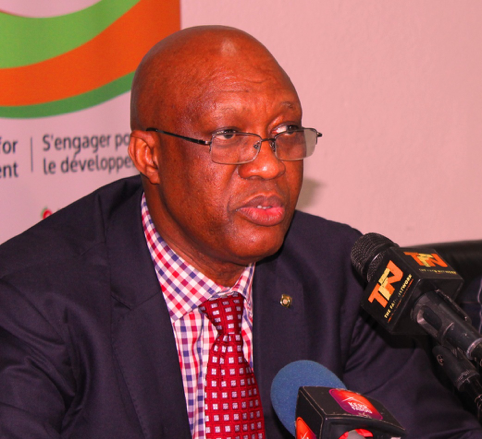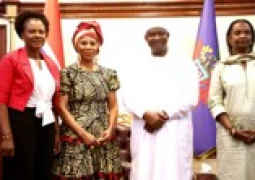
This development was confirmed by Commissioner General Yankuba Darboe at the recent UN-WATAF training on the fundamental principles of transfer pricing for the staff of the authority at the Senegambia Beach Hotel.
Commissioner Darboe, who is presently the Executive Secretary of WATAF, will now steer the affairs of the WATAF for the second time. In a similar development, Yankuba Darboe was also elected to among the members of the ATAF.
It would be recalled that Commissioner General was the chairman of WATAF for the last two years and it is in view of his commitment, dedication in steering the affairs of the organization that he was re-elected as chairman.
Confirming his re-election, Commissioner Darboe thanked all those who supported him in one way or the other in registering the unprecedented achievements during his first term in office.
“It was a collective effort by all members of WATAF in ensuring that we succeed together,” he said. “I want to also thank members for the trust and confidence bestowed on me to run the affairs of the organization in the next two years.”
On the recent capacity building seminar convened for the authority’s staff, Commissioner Darboe expressed delight to be associated with the event, jointly organised by his authority, the United Nations Department for Economic and Social Affairs and the West African Tax Administration Forum (WATAF).
The training, he added, was intended to build the capacity of GRA staff on the fundamental principles transfer pricing. “I wish to seize this opportunity to thank our partners, WATAF and the UNDESA, for putting their resources at our disposal for the conduct of this capacity building program,” he said.
The GRA Commissioner General said that transfer pricing is the term used to describe the pricing of cross-border transaction in goods or services taking place between related parties.
“Pricing cross-border related party transactions is one of the main challenges for developing countries when dealing with international tax issues,” he said, adding: “The practice also extends to multi-national and other big companies as their transaction may span within different jurisdictions. Countries use the arm’s length principles and other anti-tax avoidance provisions of the tax laws to address such practices to fight cases of double taxation or double non-taxation.”
With this practice in place, he said, the potential for profit shifting is high and tax authorities are challenged due to capacity gap and limited resources.
“In The Gambia, we do not give specific laws for transfer-pricing but there are provisions for anti-tax avoidance scheme,” he noted. “This way we will be better equipped and capacitated to properly handle the issues of the transfer pricing and profit shifting.”
Also speaking on the occasion, Babatunde Oladapo, executive director of WATAF, said one of the founding objectives of WATAF is to build the capacity of the tax officials in West Africa, further acknowledging that The Gambia is one of the key members of WATAF.
The re-election of GRA boss as chairman of WATAF, he added, speaks highly of the level of commitment and dedication “he wants to see the authority in the coming years”.




